 Image Credit: (Pixabay CC0)
Image Credit: (Pixabay CC0)
What were you reading in 2018 on LSE Review of Books? In Part One of our review of the year, we count down the 12 most read new reviews on the LSE RB blog, beginning with 12-7. Find out the top 6, including the most popular post of the year here.
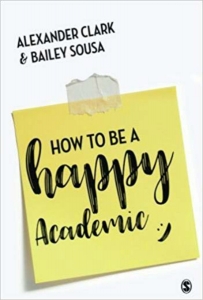 12. How to be a Happy Academic: A Guide to Being Effective in Research, Writing and Teaching. Alexander Clark and Bailey Sousa. SAGE. 2018.
12. How to be a Happy Academic: A Guide to Being Effective in Research, Writing and Teaching. Alexander Clark and Bailey Sousa. SAGE. 2018.
In this book, Alexander Clark and Bailey Sousa aim to support fellow academic workers at all career stages to become more efficient, successful and happier through focusing on fostering good habits over and above talent or skills. Eddy Li welcomed its insider perspective on seeing, doing and – most importantly – taming academic work, even if it leaves open the question of how exactly we measure and define ‘success’.
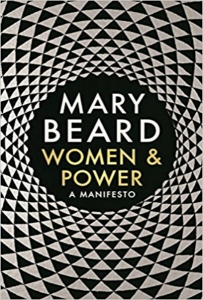 11. Women & Power: A Manifesto. Mary Beard. Profile Books. 2017.
11. Women & Power: A Manifesto. Mary Beard. Profile Books. 2017.
Mary Beard explores women’s continued exclusion from the seats and structures of power as a consequence of women’s fraught relations with the act of public speaking. Samantha Fu found this a timely, witty and impatient examination of the damaging ways that our societies perpetuate women’s silence and recommended it as required reading for those who see the fight for gender equality as over.
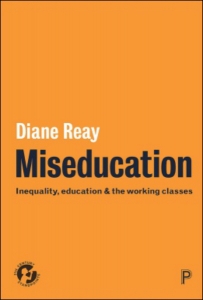 10. Miseducation: Inequality, Education and the Working Classes. Diane Reay. Policy Press. 2018.
10. Miseducation: Inequality, Education and the Working Classes. Diane Reay. Policy Press. 2018.
Diane Reay draws on interviews with over 500 children to explore the class inequalities that persist in UK education today from the transition to secondary school up to university. Natasha Codiroli Mcmaster found that the book’s personalisation of everyday working-class experiences of education, combined with statistical evidence on continued inequality, make it engaging and timely reading.
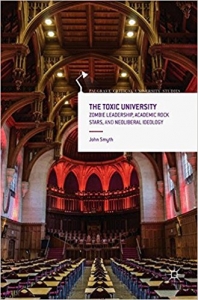 9. The Toxic University: Zombie Leadership, Academic Rock Stars and Neoliberal Ideology. John Smyth. Palgrave Macmillan. 2017.
9. The Toxic University: Zombie Leadership, Academic Rock Stars and Neoliberal Ideology. John Smyth. Palgrave Macmillan. 2017.
John Smyth offers a critical reading of the pathological state of higher education today, diagnosing this as the effect of commodification, marketisation and managerialism. Jana Bacevic recommended this as an outstanding synthesis of the current challenges facing the HE landscape.
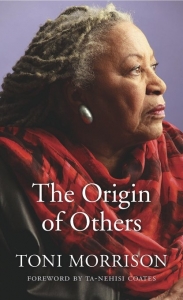 8. The Origin of Others. Toni Morrison. Harvard University Press. 2017.
8. The Origin of Others. Toni Morrison. Harvard University Press. 2017.
Pulitzer Prize-winning author and recipient of the Nobel Prize in Literature Toni Morrison extends her existing nuanced explorations and interrogations of race and racism by examining the structures that construct ‘Otherness’ in the interconnected contexts of literature and lived experience. Based on a series of lectures given at Harvard University in 2016, this is not always an easy or accessible read, but Samantha Fu praised it as a powerful riposte to the persistence of bigotry, intolerance and division today.
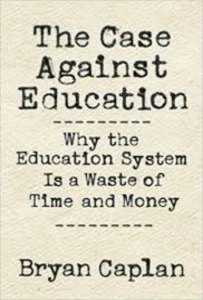 7. The Case Against Education: Why the Education System is a Waste of Time and Money. Bryan Caplan. Princeton University Press. 2018.
7. The Case Against Education: Why the Education System is a Waste of Time and Money. Bryan Caplan. Princeton University Press. 2018.
Bryan Caplan argues that students spend too much time in formal education, which serves less to enhance skills and understanding that to ‘signal’ one’s value to future employers. Caplan’s proposal to reduce education funding is controversial, wrote Aveek Bhattacharya, but the book will prove an interesting, if provocative, read for those looking at education policy.




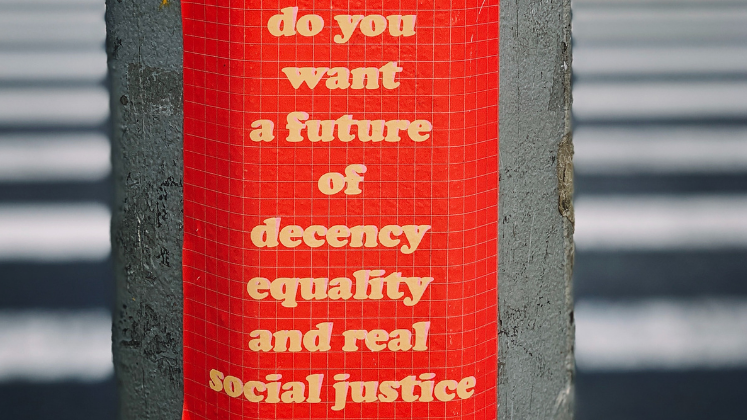
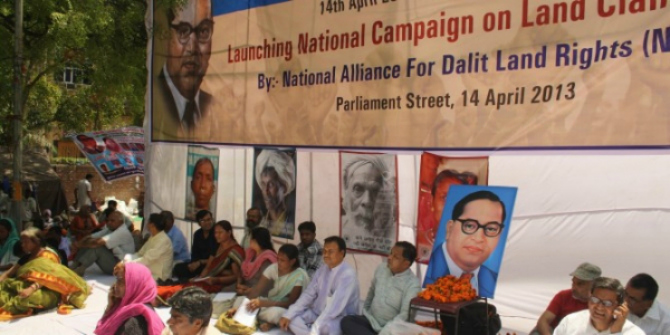

1 Comments